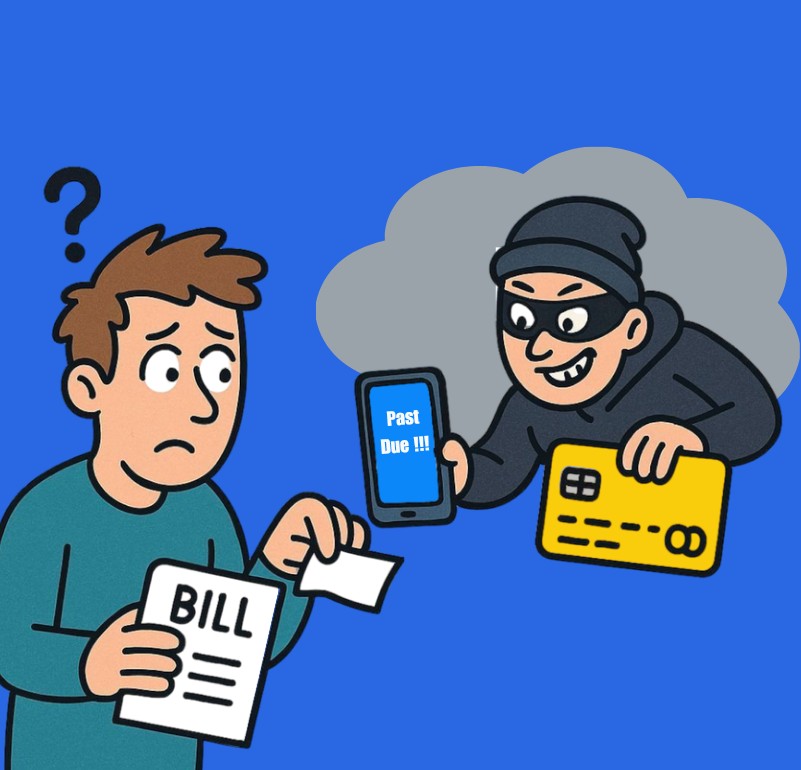 Cloud computing has become the digital backbone of everyday life. People and businesses rely on services such as Google Drive, iCloud, OneDrive, and Dropbox to store photographs, documents, and critical work files. This convenience has also given rise to a disturbing form of cybercrime: the cloud subscription scam. These scams impersonate legitimate providers, using fake alerts to steal personal data, login credentials, and financial information.
Cloud computing has become the digital backbone of everyday life. People and businesses rely on services such as Google Drive, iCloud, OneDrive, and Dropbox to store photographs, documents, and critical work files. This convenience has also given rise to a disturbing form of cybercrime: the cloud subscription scam. These scams impersonate legitimate providers, using fake alerts to steal personal data, login credentials, and financial information.
𝐓𝐡𝐞 𝐌𝐞𝐭𝐡𝐨𝐝𝐬 𝐎𝐟 𝐓𝐡𝐞 𝐒𝐜𝐚𝐦
Fraudsters typically begin with a message that looks authentic. It may claim that storage space is full, that a billing issue has occurred, or that an account has been compromised. The message then pressures the recipient to act quickly. By clicking the provided link, the victim is taken to a convincing but fraudulent website where sensitive information is captured.
𝐖𝐡𝐲 𝐏𝐞𝐨𝐩𝐥𝐞 𝐅𝐚𝐥𝐥 𝐅𝐨𝐫 𝐈𝐭
Cloud subscription scams work because they exploit urgency. Losing access to personal photographs or work documents feels catastrophic. Users fear data loss, and in that moment they may overlook the subtle signs of fraud, such as a misspelled domain or a suspicious sender address. Criminals rely on that fear to override judgment.
𝐑𝐞𝐚𝐥 𝐄𝐱𝐚𝐦𝐩𝐥𝐞𝐬 𝐅𝐫𝐨𝐦 𝐑𝐞𝐜𝐞𝐧𝐭 𝐘𝐞𝐚𝐫𝐬
The rise of cloud subscription scams is not theoretical. They are happening right now across the world, with documented cases in the United States, Europe, and elsewhere.
United States Federal Trade Commission (July 2025) issued an alert titled “Are you really out of Cloud storage or is the message a scam?” The warning described texts and emails pretending to come from Apple, Google, or Microsoft, all claiming accounts were full or locked. The FTC urged consumers to verify storage directly through the provider’s app or website.
MailGuard (July 2025) intercepted a wave of phishing emails that mimicked Apple’s iCloud branding. The messages stated that the user’s mailbox was 97 percent full and that incoming mail would be lost unless the recipient clicked a link to “upgrade.” The domain behind the link was not associated with Apple.
Trend Micro (January 2024) identified a surge of fake iCloud notifications claiming accounts were at risk or storage was full. Thousands of these fraudulent alerts were blocked within a single week, showing how widespread the scam has become.
Safeonweb (Belgium) also warned of a phishing campaign that spread through thousands of emails with the subject “Your iCloud space is full.” The messages urged recipients to “upgrade” immediately to avoid losing data. Belgian authorities noted that the scam appeared in multiple variations and was circulating heavily.
𝐓𝐡𝐞 𝐂𝐨𝐧𝐬𝐞𝐪𝐮𝐞𝐧𝐜𝐞𝐬 𝐀𝐫𝐞 𝐒𝐞𝐯𝐞𝐫𝐞
The implications go far beyond inconvenience.
🆔 Identity theft occurs when stolen credentials are reused across multiple platforms.
📂 Data breaches expose personal or professional information that can be exploited or sold.
💰 Financial fraud arises when victims enter payment details into false billing portals.
📧 Compromised accounts are then used to distribute further phishing campaigns.
𝐇𝐨𝐰 𝐓𝐨 𝐏𝐫𝐨𝐭𝐞𝐜𝐭 𝐘𝐨𝐮𝐫𝐬𝐞𝐥𝐟
The responsibility to stay safe falls heavily on individual users. Awareness and careful habits are the strongest protection.
👀 Question every unsolicited alert until it is verified.
🌐 Access your cloud service directly by typing the official web address, not by clicking links in emails or texts.
🔎 Scrutinize sender addresses and domains for inconsistencies.
🔑 Use multi-factor authentication to add a barrier even if a password is stolen.
💻 Keep devices and security software updated.
📢 Share this knowledge with family, friends, and colleagues to spread awareness.
𝐓𝐡𝐞 𝐖𝐚𝐲 𝐅𝐨𝐫𝐰𝐚𝐫𝐝
Cloud subscription scams will continue to evolve as long as people depend on digital storage for their personal and professional lives. Criminals adapt quickly, re-using the same themes of “storage full,” “account suspended,” or “payment failed,” but dressing them in ever more convincing disguises.
Technology companies can strengthen filters and authentication systems, but individuals still carry the final responsibility. Vigilance, skepticism, and direct verification are not optional habits in the digital era; they are survival skills.
The cloud promised security and convenience. Whether it remains a safe tool or becomes a trap depends on how carefully users learn to navigate the growing landscape of deception.
- Log in to post comments
